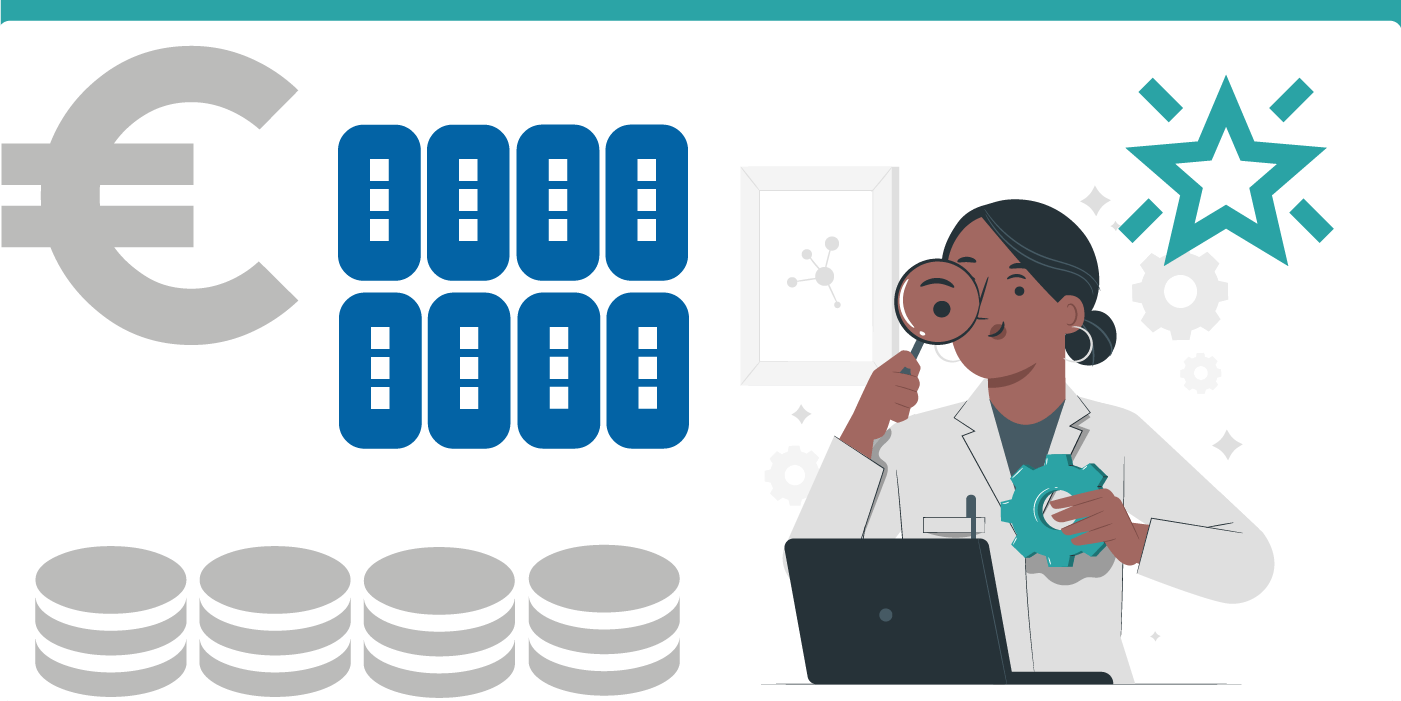In order to support research activities in Azure, the ZID is once again offering financial funding for 2026. The positive feedback from previous participants was the deciding factor in offering the funding for the third time.
The total funding pot is 20,000.00 euros. The ZID awards up to 5,000.00 euros per project. When awarding funding, projects with one of the following characteristics are prioritised:
- Use of hybrid approaches (combined use of Azure services with local infrastructure)
- Use of Azure services with artificial intelligence
- Use of Azure services for which the ZID does not offer alternative IT services
- Particularly innovative character
The exact funding conditions are available at Funding for research with Azure services. Employees can submit an application for funding via this website between 03.11. and 31.12.2025.
Review of 2025: 9 projects, diverse approaches
In 2025, the ZID was able to fund 9 projects. These started at the beginning of the year and some will continue into next year.
Researchers from a wide range of faculties received funding, including the Faculty of Computer Science, the Faculty of Business, Economics and Statistics, the Faculty of Psychology and the Faculty of Historical and Cultural Studies. You can find out more about the funded projects in the interview with Fabian Jusufi, who is responsible for Azure service in the Coordination Digital Transformation staff unit.
The projects not only come from different scientific disciplines, they also differ greatly in their approach – as the abstracts of the projects show. Fabian Jusufi adds: “But almost all projects have one thing in common – they use the AI services in Azure: OpenAI Service and Azure AI Foundry.”
While the OpenAI Service focuses on the use of OpenAI’s large language models (LLMs), Azure AI Foundry is a much more comprehensive platform. It offers numerous other LLMs and enables all AI solutions available in Azure to be created and managed centrally.
AI services in particular have developed significantly in Azure in 2025. Both the researchers and the Coordination Digital Transformation Team were able to gain valuable experience in the practical use of AI during the course of the project implementation.
Outlook for 2026: Everything AI?
The coming year is also likely to bring many more innovations in this area. Azure AI Foundry, in particular, is developing rapidly and, in addition to the latest LLMs, offers the option of configuring your own AI agents.
Fabian Jusufi expects that many of the projects submitted will again use AI services, but he suggests: “All Azure services are available to researchers. Services such as virtual computers, storage space, databases, network solutions, analysis tools and much more can also be used – all without long lead times and individually configurable. Azure also offers a modern and scalable environment for software development with container services and DevOps tools.”
Whichever Azure services the researchers ultimately choose for their projects, the Coordination Digital Transformation Team looks forward to receiving numerous new applications.

